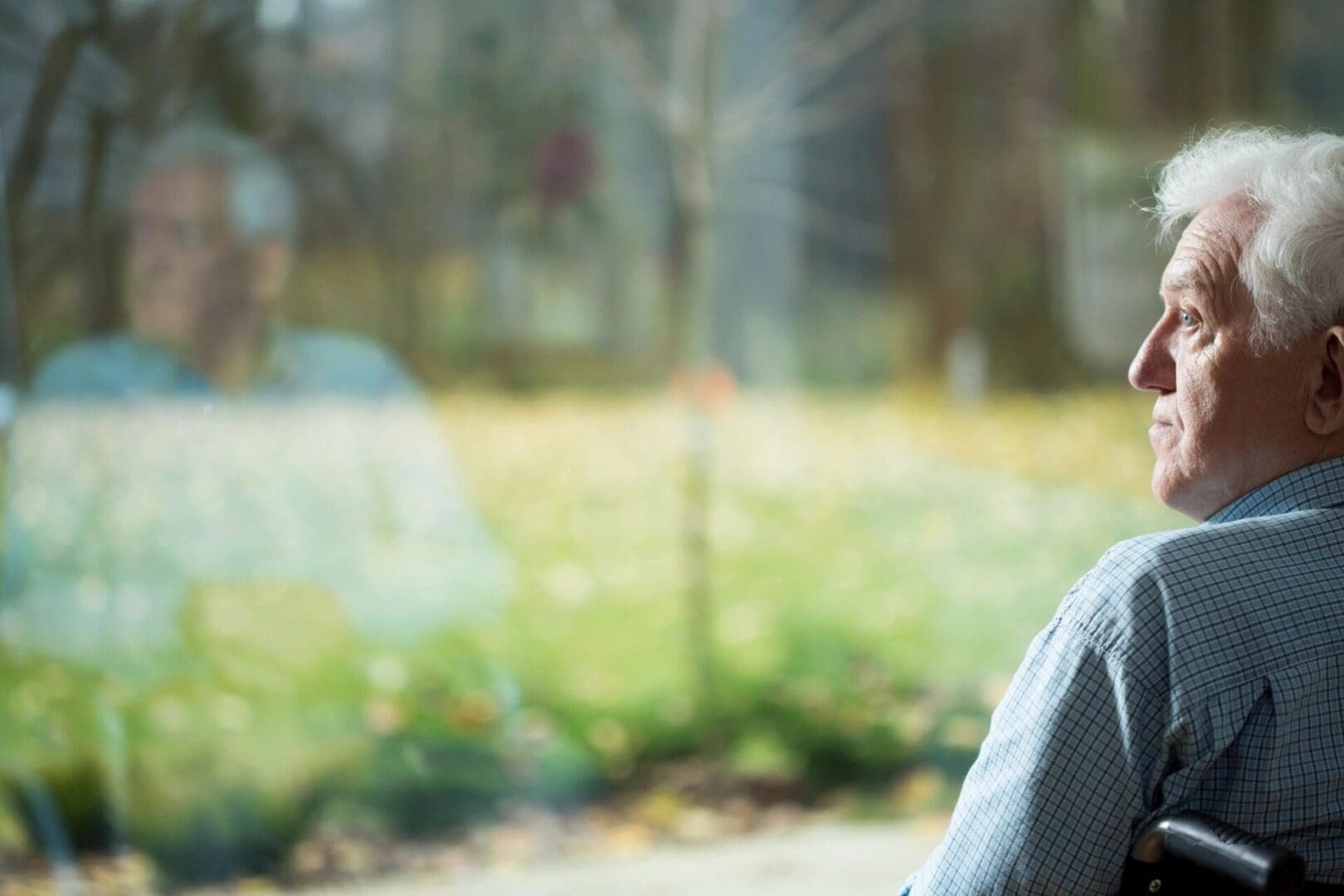Search Posts
Recent Posts
- Detailing Manhattan: Christopher Gray’s Legacy – David Brussat April 26, 2024
- Business Beat: BankNewport supports Kids’ Zone at new Save The Bay Hamilton Family Aquarium April 26, 2024
- Rhode Island Weather for April 26, 2024 – John Donnelly April 26, 2024
- GriefSPEAK: Dread. Fear. Welcome relief. – Mari Nardolillo Dias April 26, 2024
- Outdoors in RI: big animals, tiny Ticks, huge Trout, Chepachet’s Harmony Railway, 2A – Jeff Gross April 26, 2024
Categories
Subscribe!
Thanks for subscribing! Please check your email for further instructions.

Senate Comm. on Aging: Impact of Isolation and Loneliness on Seniors During COVID-19
By Herb Weiss, contributing writer on aging
As the COVID-19 crisis has shuttered businesses throughout the nation, state and federal health officials scramble to stop the spread of this deadly virus. As states begin to slowly open up their economies, a growing number of researchers are finding that mandated social distancing and isolation through self-quarantine may have significantly impacted senior’s mental health and emotional wellbeing.
Just days ago, a U.S. Senate Special Committee on Aging morning hearing, chaired by Chairman Susan Collins (R-ME) and Ranking Member Bob Casey (D-PA), was held to address the growing isolation and loneliness seniors across the nation are experiencing due to COVID-19 and to explore what policies can better assist those working with this vulnerable population.
The Senate Aging Committee hearing, titled, “Combating Social Isolation and Loneliness During the COVID-19 Pandemic,” pulled together a panel of experts who are supporting older adults in hospitals, nursing homes, assisted living, home health, and the community. On July 11, the two hour and twenty-minute hearing, at Senate Russell Office Building 253, featured a new released report published by the National Academies of Science, Engineering, and Medicine (NASEM) titled, “Social Isolation and Loneliness in Older Adults: Opportunities for the Health Care SyCommstem.”
America’s Seniors are Isolated and Lonely
According to the Washington, DC-based NASEM’s findings, nearly one quarter of older adults are socially isolated, and more than 40 percent report being lonely. During the COVID-19 pandemic, early studies have suggested that for some older adults, social distancing guidelines and stay-at-home orders are resulting in increased rates of social isolation and loneliness, which can have serious, even deadly, consequences for the health and well-being of our nation’s seniors. Prolonged social isolation and loneliness have been found to have adverse impacts on health comparable to smoking 15 cigarettes per day.
This hearing builds on the Aging Committee’s long-standing leadership on the issue of social isolation and loneliness, including holding the first Congressional hearing on this topic in 2017 and leading the 2020 reauthorization of the Older Americans Act (OAA), which included several policies to reduce social isolation and loneliness, says a statement issued by the Senate Aging Committee.
“As the pandemic continues and the epidemic of loneliness and isolation worsens, we run the risk of an infectious disease causing a mental health crisis. Already, calls to Maine’s mental health support line have increased an estimated 40 percent since the beginning of the pandemic,” says Collins in an opening statement.
According to Collins, isolation and loneliness also have a fiscal cost, too. The Maine Senator highlighted a 2017 paper published by AARP’s Public Policy Institute, that reported isolation among older adults increases federal spending by an estimated $6.7 billion annually, as isolated people are often sicker and have to rely more heavily on skilled nursing care.
Combating Social Isolation
In his opening statement, Casey stated: “Before COVID-19, millions of seniors faced social isolation and loneliness every day, we know that. Now, they are looking at relatives through windowpanes. He urged his Senate colleagues to support his legislation, which would combat the impact of the COVID-19 pandemic by providing additional funding to expand senior nutrition programs and SNAP delivery and combat social isolation through the purchase of technology by nursing homes so residents can connect with their loved ones.”
During the hearing, Betsy Sawyer-Manter, President and CEO of SeniorsPlus in Lewiston, Maine, an agency that oversees the Area Agency on Aging’s (AAA) nutrition services, caregiver services, Alzheimer’s respite, Medicare, counseling, and health and wellness programs, discussed her work to shift to virtual programming in place of home visits and to scale up the nutrition program to meet growing needs amid the COVID-19 pandemic. She told the committee how these practices have helped to combat social isolation for older adults.
Najja Orr, President and CEO of the Philadelphia Corporation for Aging (PCA), discussed the steps PCA has taken to help seniors during this public health crisis, including their work to strengthen their home-delivered meal program. He called for increased funding and education to bridge the digital divide in communities as the COVID-19 pandemic has shifted many programs and resources to online platforms. Additionally, Orr urged Congress to expand flexibility of funding awarded to states and AAA’s through the Older Americans Act, which would allow local governments and agencies to better meet the needs specific to their communities.
Carla Perissinotto, MD, associate chief for Geriatrics Clinical Programs at the University of California San Francisco, who has studied the health impacts of loneliness on seniors for a decade, noted that “the prevalence rates for loneliness and isolation range from 20 percent to 50 percent and the corresponding health effects are disquieting.” According to Perissinotto, isolation and loneliness are associated with a 50 percent increased risk of developing dementia. Those people with heart failure who are experiencing loneliness also have a four-fold increase in the risk of death, a 68 percent increased risk of hospitalization and a 57 percent increase in risk of hospitalization use.
Perissinotto expressed concern to the committee about the downstream health effects of the pandemic. “Seemingly overnight, we saw our social structures dissolve as we were all forced to socially distance ourselves,” she says. “The challenge of all of this is that to protect our lives and health now, we have had to subject ourselves and others to the potential risks that we may be worsening our health and shortening our life expectancies in the future.”
Although video and internet technology are being used to communicate with those shuttered in their homes and nursing home and assisted living facilities, a large number of seniors do not have access to these technologies, says Perissinotto. These technologies are especially difficult for the hearing and visionally impaired persons to use, she says.
Finally, Dr. Peter Reed, Director of the Sanford Center for Aging at the University of Nevada Reno, discussed a portal he created for older adults in Nevada to easily communicate their needs in areas including telehealth, social support, and food and medicine. This portal, called the Nevada COVID-19 Aging Network Rapid Response (Nevada CAN), was launched on April 1st and has served hundreds of seniors during the pandemic.
Ending Legislative Gridlock in the Senate
COVID-19 related legislative proposals await consideration in the Senate. As the Presidential election approaches, voters must demand that the Senate end legislative gridlock, allowing swift bipartisan action to pass legislative proposal that will help seniors affected by the COVID-19 virus. We can’t sit back and wait.
To purchase a copy of NASEM’s “Social Isolation and Loneliness in Older Adults: Opportunities for the Health Care System,” go to

Herb Weiss, LRI’12, is a Pawtucket writer covering aging, health care and medical issues. To purchase Taking Charge: Collected Stories on Aging Boldly, a collection of 79 of his weekly commentaries, go to herbweiss.com.
